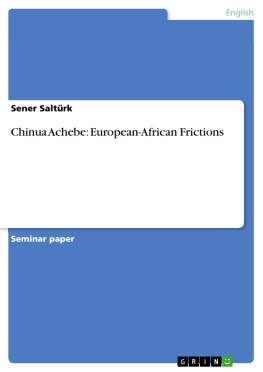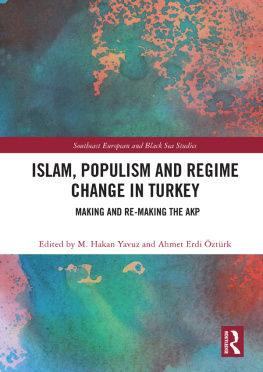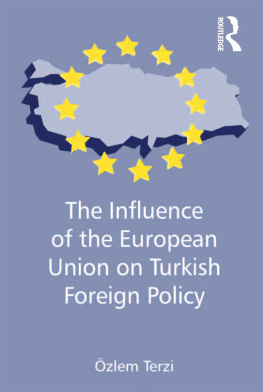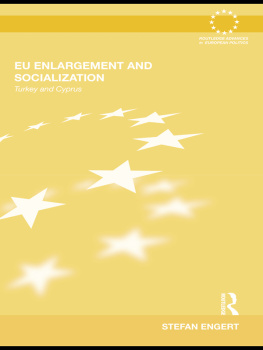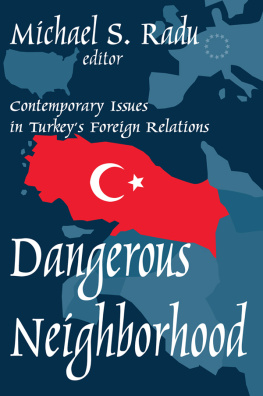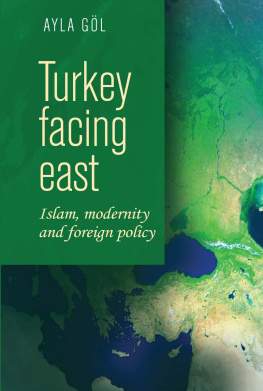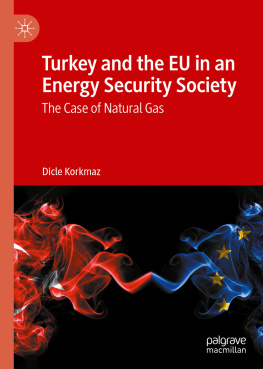Preface
The Power of Enlightenment
In the field of foreign policy interests are often more important than arguments for or against. There is in fact much to be said for the idea that one day Turkey may become a member of the European Union. But that is not very popular. And who wants to champion a cause which is bound to alienate voters instead of gaining their support? One man is actually prepared to go down this road. What Ruprecht Polenz has to say in this paper goes against public opinion and the basic tenets of his own party. A Christian Democrat and chairman of the German Parliaments Committee on Foreign Affairs, he does a good service to democracy by adhering to Article 38 of the Basic Law, which states that members of parliament are responsible only to their conscience. Democracy is posited on an epistemological kind of dialogue, and this is at variance with the dictates of the party whip. If political parties determine in advance the line they intend to follow on a particular issue, this will merely lead to a clash of opposing views and not to a fruitful interchange of arguments. But the latter is absolutely essential if public opinion is to grow and develop instead of standing still. And that was the whole point of the Enlightenment.
Polenz places his trust in Enlightenment, for he believes that its immanent power will enable Turkey and the EU to make the right kind of progress. When Turkey joins the EU, it will be a different country. In the course of the protracted accession process, it will become living proof that Islam, democracy and the rule of law are not incompatible. Yet the process also presents the European Union with an opportunity, and this is to develop an enlightened understanding of its identity. After overcoming numerous ingrained prejudices, the Union, in the words of the EU Treaty, will at last be open to all European states which respect its values and are committed to promoting them together. The author interprets this as follows. In the 21 st century these values should be defined and construed in terms of their universal validity, as indeed they were by the Enlightenment and the French Revolution.
In this essay Ruprecht Polenz models his thinking on the best French and Cartesian traditions of reason, and in a calm, sober and systematic manner he refutes one argument against Turkish membership after another. However, this book contains more than a mere list of pros and cons. Thus the authors message and procedure are based on a forward-looking understanding of politics. It is the task of Europe in general and of Germany in particular to make a very specific contribution to the global society of the 21 st century. If Turkey were to become a member of the EU, it would make it clear to all the world that Europe does not want a clash of civilizations.
Roger de Weck
Editor of the series Standpunkte
Frankfurter Allgemeine Zeitung: So the real question continues to be where one puts the border in geographical terms. You say that Turkey can join the EU if it fulfils the criteria.
Helmut Kohl: We have always said that.
(Personal Interview on 22 January 2004)
Better for Both of Them
There are people who are opposed to Turkish membership of the EU on principle. This plea for Turkish accession to the European Union is directed to them on the assumption that there is total compliance with the Copenhagen accession criteria, not only in theory, but in palpable practice.
I think there are two main reasons why some people are fundamentally opposed to the whole idea. First, whether one likes it or not, they will say, there is a cultural and above all a religious distinction, and this means that Turkey, when it is compared to us, the Europeans, is simply different. Secondly, they believe that after the accession of a country as large as Turkey the EU as a political union will no longer be in a position to take meaningful action.
And for those who consider Turkey to be different in an immutable and irreconcilable kind of way, the issue of EU membership tends to have something to do with their desire to keep Islam at arms length, since that is what they are really frightened of. Those who are against Turkish EU membership on principle and under all circumstances will certainly not be convinced by the progress that is being made to comply with the Copenhagen criteria.
The ensuing remarks are based on these fundamental objections, which are adduced in the form of knock-out criteria, and the auxiliary arguments which underpin them. They are followed by a glance at the state of the reforms in Turkey and the question of the extent to which they already fulfil the accession criteria.
The arguments against adherence to the goal of membership which are currently being rolled out in the course of the accession negotiations have shaken the reliability and credibility of the EU. In view of an accession history that reaches back a number of decades and the agreements that already form a link between the EU and Turkey, they are not enough to prompt the EU to depart from the basic principle of pacta sunt servanda.
There can be no doubt about the fact that the EU process is very advantageous for Turkey. It has had a stabilizing effect on the development of its democratic institutions and the rule of law, has strengthened its economy and enhanced its regional influence. And it is imparting meaning and direction to the reforms that are still required.
But a successful accession process also means that there will be significant opportunities as far as the EU is concerned. Turkish membership of the EU would lead to improved energy supply security and a greater ability on the part of the EU to exert its influence on neighbouring areas such as the Middle East, the Caucasus and the Black Sea region which are so important for our security. In addition to this the European economy would profit from a young and growing market. And above all EU membership for Turkey would demonstrate that the European model of the rule of law and democracy is also a distinct possibility as far as quite a few other countries with a Muslim population are concerned.
It is unclear whether Turkey will actually manage to get into the EU. And no one can predict how much time is still needed. Both depend primarily on Turkey itself. At the end of the day Turkey will be a different country. We should support and encourage it as it grapples with difficult reforms. Ultimately it is in our own interests to do so.
The Turkish Peril. A Historical Trauma
In the middle of Graz, which was the European capital of culture in 2003, stands the cathedral church of Saint Aegidius (St Giles). On its southern outer wall a fresco dating from 1485 depicts in a telling contemporary way the three divine plagues: locusts, the pest and the Turks.
The Turks as a divine plague. Probably not even the most bitter opponents of EU membership would go that far. But the historical trauma of the Turkish peril continues to resonate to this day.
The fact that countless streets in Austrian and German towns are named after Prince Eugene of Savoy is a reminder of the historical battles against the Turks. It is probably not embedded in our collective memory that in 1683, at the siege of Vienna under Grand Vizier Kara Mustapha, Protestant Hungarians fought on the side of Turkish Muslims because there was greater tolerance under Islamic rule than under the Catholic Habsburgs. They were the Kruzitrken or Christian Turks, a term which continues to be an expletive in Alpine countries to this day.




